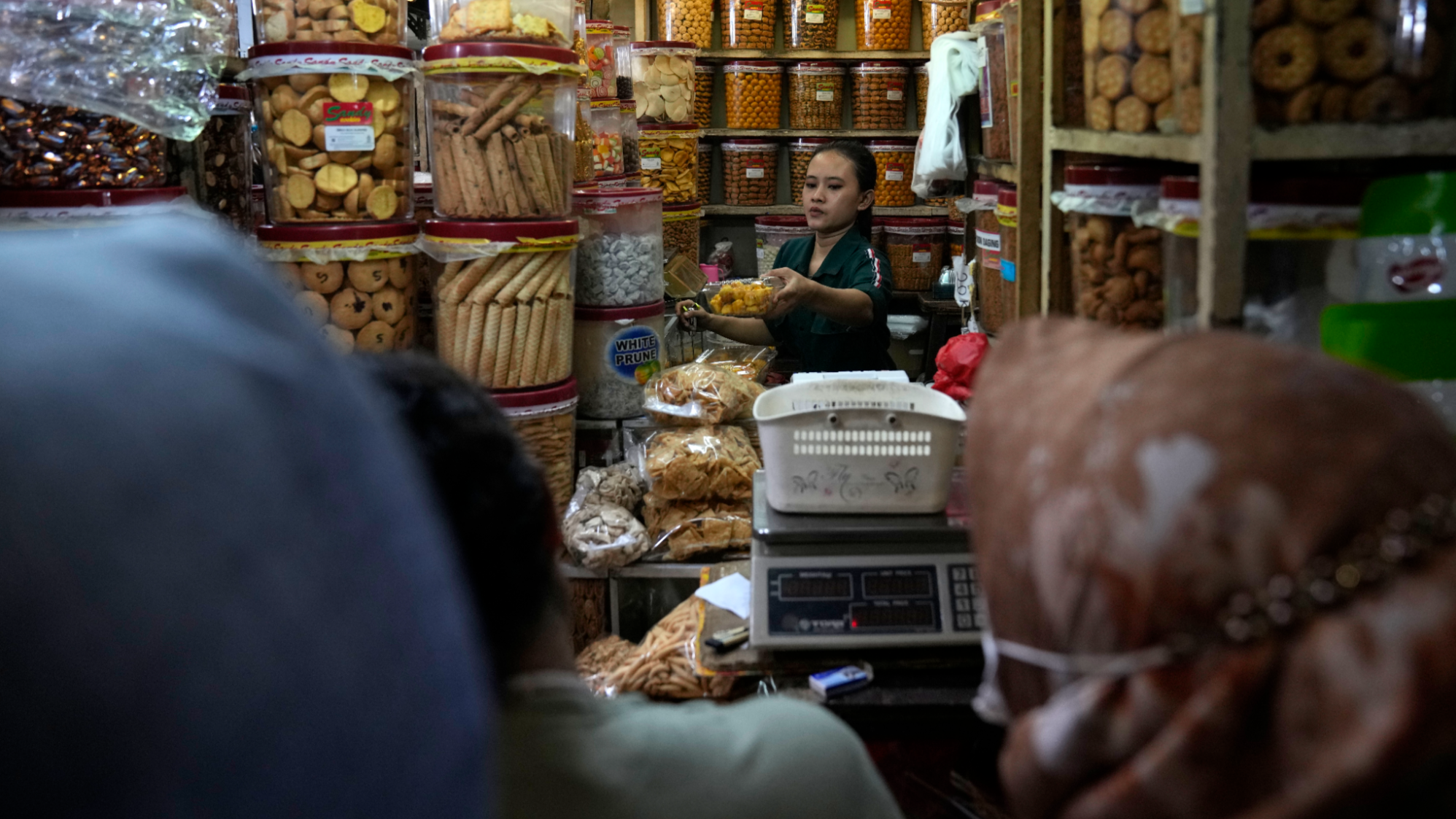
Indonesia and China have strong reasons to be optimistic that they can build deep collaboration and exchanges in the food industry and related services not only for domestic consumption but also for export, a Jakarta forum heard on Nov 11.
Besides their long history of friendly exchanges, Indonesia and China have achieved a solid diplomatic relationship over the past decade. This has helped support the Southeast Asian nation’s economic development, trade, and other sectors including the food industry and related businesses.
Indonesia’s abundant natural resources and China’s technological capabilities and experience have been key to their collaboration so far.
READ MORE: Indonesia's Prabowo visits Papua to check key food estate project
However, the time has now come for the two nations to go deeper into bilateral cooperation in the food industry, according to speakers and participants during a business matching event entitled “Chinese Enterprises Go Overseas: In-depth Tour into Indonesia”.
They added that they expect a stronger presence of Chinese investment in Indonesia.
Representatives of about 100 Chinese enterprises and more than 100 people from Indonesian food-related businesses attended the opening of the five-day event.
The schedule included face-to-face interactions between Chinese entrepreneurs and their potential local partners, visits to food ingredient production and processing facilities in and around Jakarta, and the signing of agreements.
Sudrajat, chairman of the Association of Indonesia-China Economic, Social, and Cultural Cooperation, said that a developed food industry is strategic for Indonesia because it significantly supports the country’s economic growth and absorbs many job seekers.
He said that the food and beverage sector has grown significantly over the past years, contributing 34 percent on average to Indonesia’s gross domestic product (GDP).
“The main factors behind this are rising domestic consumption and exports,” Sudrajat said when opening the forum.
Sudrajat was among 30 speakers on the opening day, with several executives from Chinese firms sharing their experiences of building and running their businesses.
Other speakers included Cao Derong, chairman of China Chamber of Commerce of I/E Foodstuffs; Li Hongwei, minister-counselor of the embassy of the People’s Republic of China in Indonesia; Nurul Ikhwan, deputy minister of Indonesia’s Ministry of Investment; Budi Santoso, representative of Indonesia’s Ministry of Trade; Adhi Lukman, president of the Indonesian Food and Beverage Association; and Zhang Jinxiong, chairman of the Indonesian Chinese Entrepreneurs Association.
Cao said that bilateral collaboration in food sector development goes hand in hand with new Indonesian President Prabowo Subianto’s national economic growth target.
Prabowo had set an 8 percent growth target aimed at significantly improving the welfare of Indonesians. He also introduced a free nutritious meals program and sufficient local food production initiatives, curbing food imports.
During his recent visit to Beijing, the first overseas trip after his inauguration as president, Prabowo and Chinese President Xi Jinping witnessed the signing of cooperation agreements between business leaders from the two countries on priority programs related to food resiliency in Indonesia.
“Food is man’s basic need and is part of culture and man’s emotion,” Cao said in his speech, which also mentioned the richness and uniqueness of Chinese cuisine.
Cao said he is optimistic that China-Indonesia trade will continue rising in the coming years, in addition to Chinese investment in the archipelagic country of 282 million people.
He mentioned palm oil had become key to China-Indonesia trade, as Indonesia’s largest palm oil export volumes have gone to China.
Gunadi, head of the solidarity department of the Jakarta city office of the Indonesian Ulema Council (MUI), the country’s top Islamic scholars' body, lauded the “extraordinary” growth of Chinese entrepreneurs in Indonesia.
He also hailed China’s investment in remarkable projects like electric car making and the Jakarta-Bandung High-Speed Railway.
Gunadi said that the forum provides a great opportunity for Indonesia to tap into China’s excellence, including in the food industrial sector.
He added that foreign investors need not worry about Indonesia’s Halal Product Assurance Law.
Requiring all food, beverages, drugs, and cosmetics in the country to be halal-certified — declared “lawful” in Islamic teaching — the law sparked debate in the Indonesian business community when it was issued in 2014.
“Obtaining a halal certificate is not that complicated … We, at MUI, support investment including the obtaining of halal certificates,” Gunadi said.
The Food and Drug Monitoring Agency issues the certificates, in cooperation with MUI and others.
Iwan, secretary of the West Java office of the Association of Indonesia-China Economic, Social and Cultural Cooperation, said Chinese culinary businesses are growing in his area but said more ingredients should be produced locally, rather than imported.
He told China Daily that ingredients for Chinese cooking like ginger, garlic, scallion, and cinnamon can easily be obtained in West Java and many other parts of the archipelago.
“West Java needs more investors to produce more types of Chinese cuisine as so far too few Chinese foods are known to the common people,” Iwan said on the sidelines of the forum.
REEAD MORE: Indonesia to expand farmland by 3m hectares in self-sufficiency drive
Marthina Narvathirosa, CEO and founder of a restaurant in Jakarta, said besides producing locally, Indonesian firms could also import ingredients from China as their prices are relatively not too high, enabling importers to make enough profit.
She told China Daily that she and other traders would welcome cooperation with potential Chinese counterparts, for importing Chinese ingredients and exporting Indonesian food products to China.
Narvathirosa said she had held talks with several Chinese participants in the China-Indonesia forum.
The writer is a freelance journalist for China Daily.


